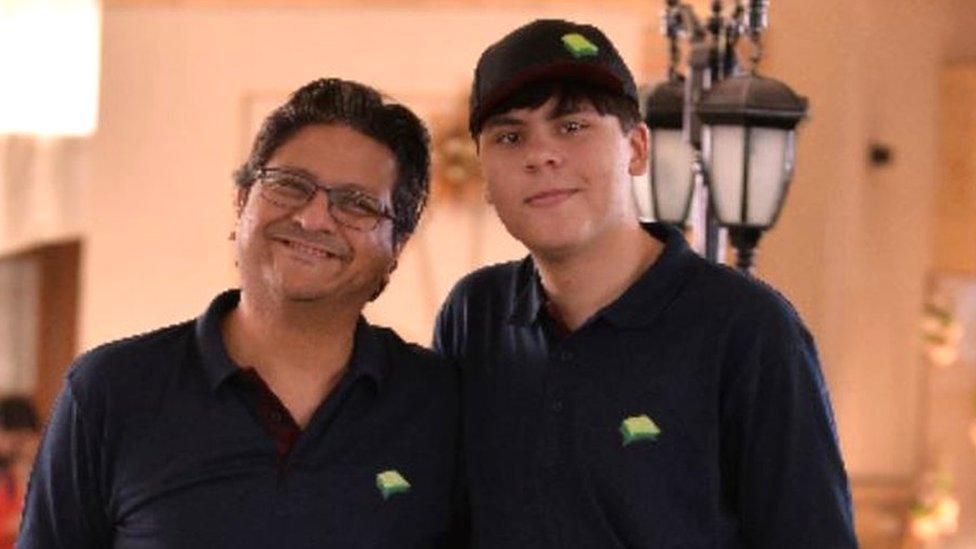Titanic wreck dives 'frightening at the best of times'
- Published
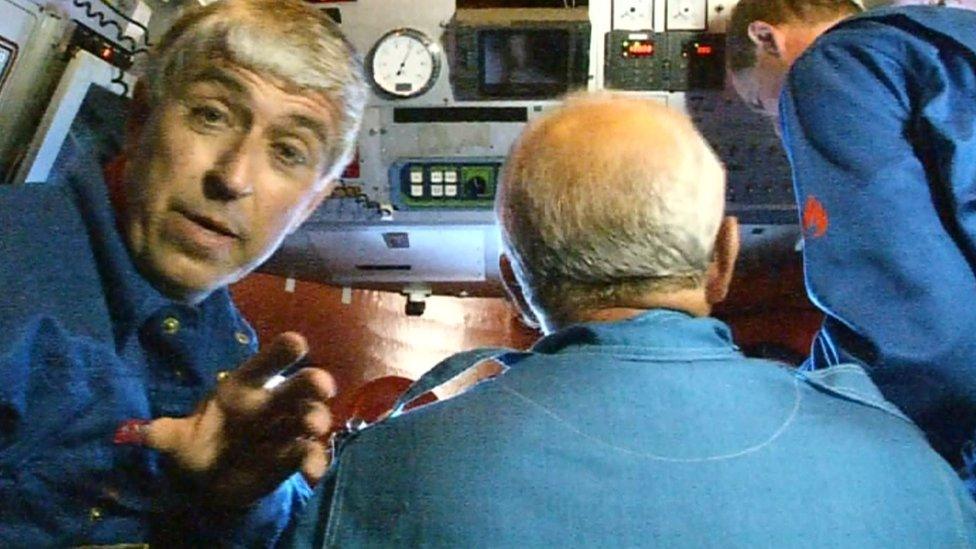
Former BBC correspondent Mike McKimm descended to the Titanic wreckage in 2005
The dive to view the Titanic shipwreck is "very frightening at the best of times", according to a Northern Ireland man who has been on a similar trip.
Former BBC News NI correspondent Mike McKimm was on a Russian-led submersible which lost power for 20 minutes during an ocean dive in 2005.
"Nobody knew what was going on and I just thought: 'Wow, this is going to be it'," he said.
His comments come as searches continue for a missing tourist vessel.
Five people were on board when contact was lost with the small OceanGate tourist submarine about an hour and 45 minutes into its dive towards the Titanic wreck on Sunday.
The US Coast Guard estimated the sub had roughly four days of oxygen left, as of 17:00 EST (22:00 BST) on Monday.
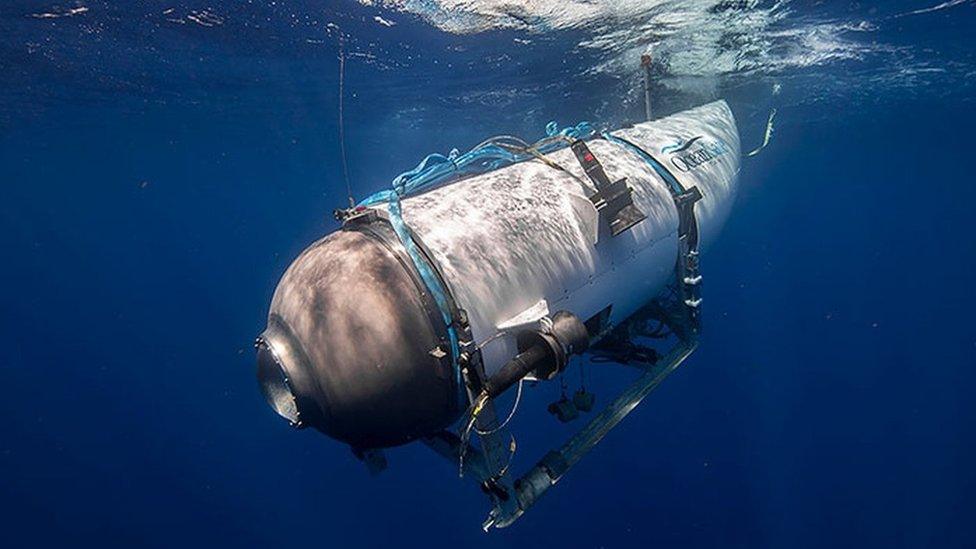
The OceanGate submersible went missing on Sunday evening

'Very frightening experience'
Mr McKimm said he was in a much smaller submarine than the one that is currently missing. At just six feet in diameter his was like "a tiny steel ball" with those on board touching shoulders, unable to move.
"You're very conscious all the time of what's happening around you, listening to noises, there's condensation forming inside of the shell which is sending off alarms," he said.
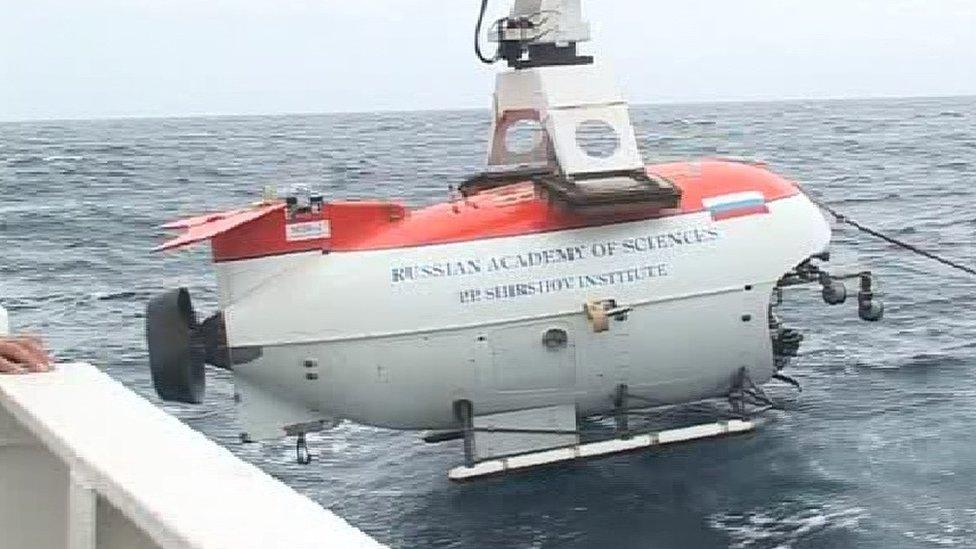
Mr McKimm was on a much smaller vessel, travelling alongside another submersible
"It was my first dive so I was very, very nervous. I can only begin to imagine what these people are going through."
His mission involved two submarines diving as a pair, meaning there was a chance of assistance if either vessel found itself in difficulty.
"That's the big problem for these people, trying to find out exactly where the submarine is."
'The risks are very high'
He said when the sub lost power "nobody knew what was going on".
"In those 20 minutes you've a lot to think about and you realise just how dangerous it all is, diving at that depth is a very dangerous pastime, the risks are very, very high," he said.
Prior to his dive, Mr McKimm had to sign a document by the Russian company, accepting responsibility and confirming that he understood the risks involved.
"These people who have dived in the last week down to Titanic will have signed exactly the same kind of document saying they accept all the risks," he said.
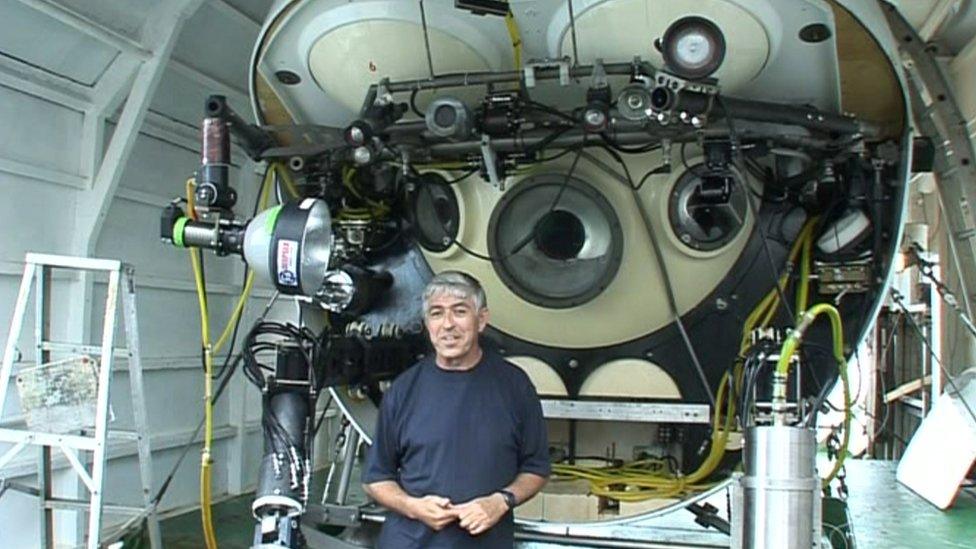
Mr McKimm said the ocean depth is "blacker than you could ever imagine"
The former journalist, who was documenting the wreckage during his descent, described the darkness of the Atlantic ocean as "blacker than you could ever imagine" with temperatures dropping to 2C.
"It is very claustrophobic," he added. "For people just sitting as tourists, looking around, there's a lot that can go through your mind."
He added that the task of rescuing those lost in the Atlantic is "mammoth, but not impossible".
- Published19 June 2023
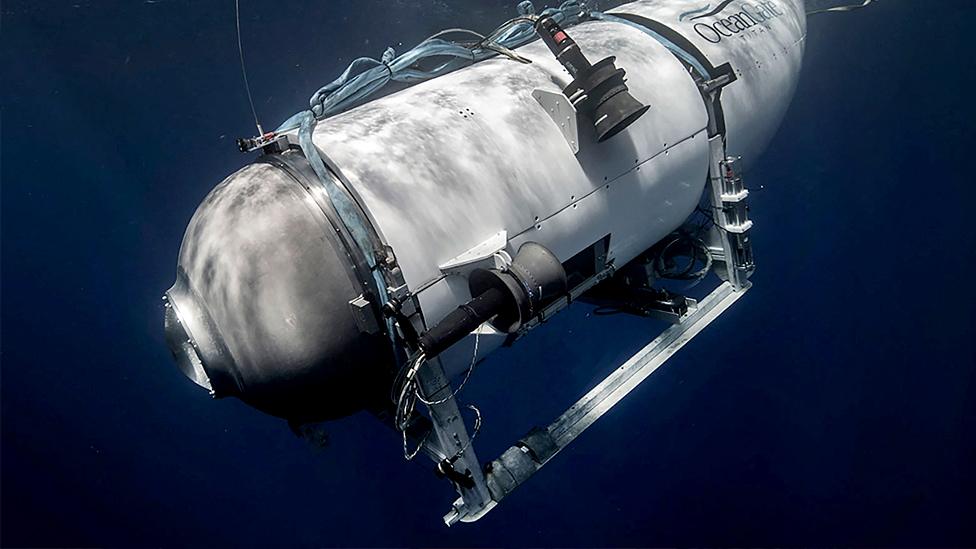
- Published20 June 2023
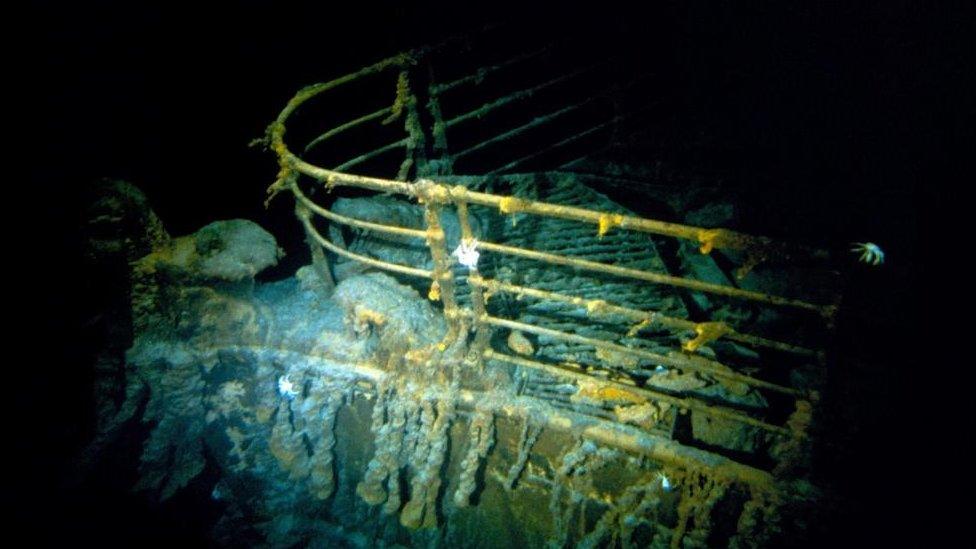
- Published23 June 2023
